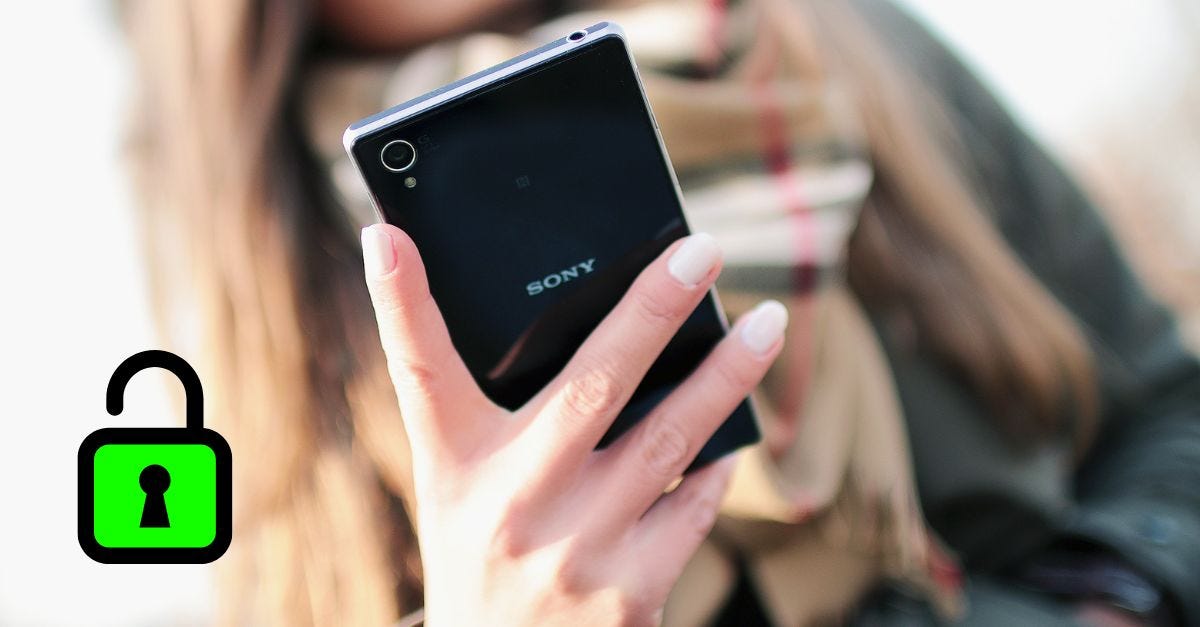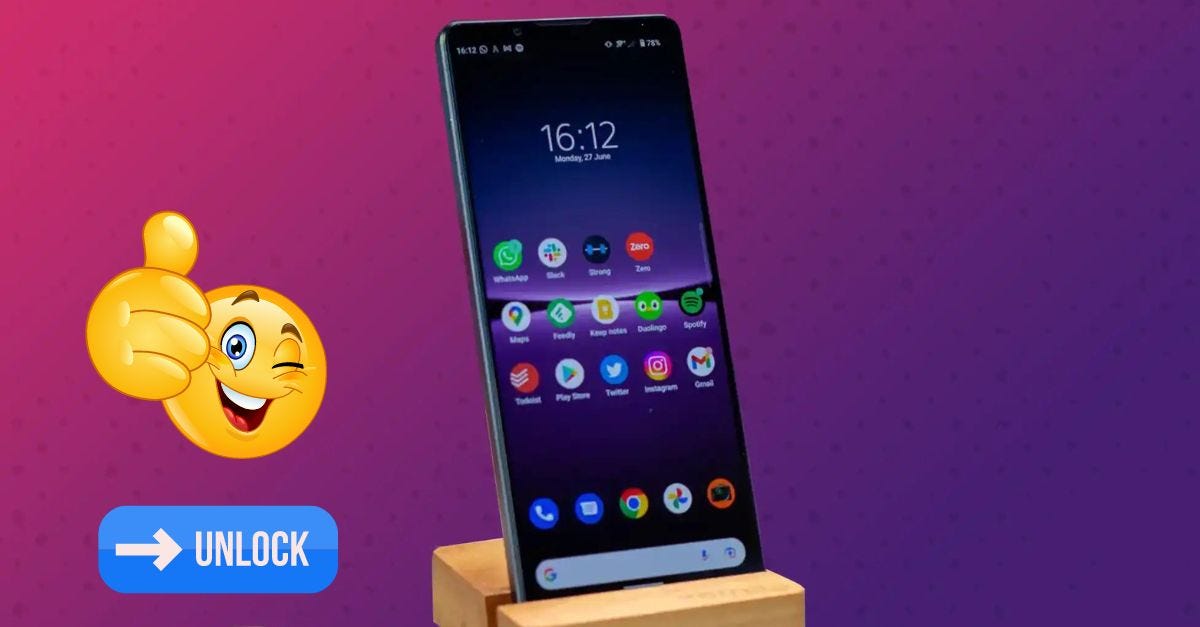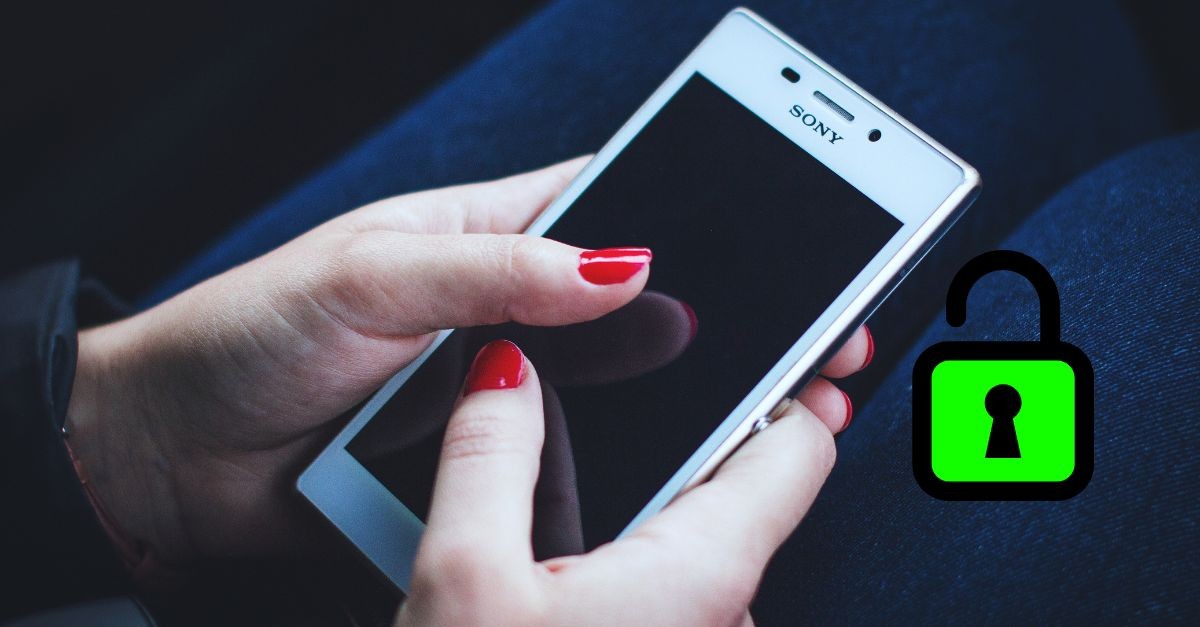Introduction
Unlocking a Sony Xperia device without the password can be a daunting task. Whether you've forgotten your password or acquired a second-hand device with a locked screen, the need to bypass the password may arise. However, it's essential to approach this process with caution and a thorough understanding of the implications involved.
In this article, we will delve into the intricacies of bypassing the password on a Sony Xperia device. From exploring the security measures implemented by Sony to discussing the various methods for bypassing the password, we aim to provide a comprehensive guide for individuals facing this predicament.
It's important to note that bypassing the password on a Sony Xperia device should only be considered in specific circumstances, such as when the device's legitimate owner is unable to access it. Engaging in this process without proper authorization may violate legal and ethical boundaries, leading to severe consequences.
As we embark on this exploration, it's crucial to approach the topic with a sense of responsibility and awareness of the potential risks involved. By gaining a deeper understanding of the security measures and ethical considerations associated with bypassing the password on Sony Xperia devices, we can navigate this complex landscape with prudence and respect for the device's integrity and privacy.
Understanding the Security Measures on Sony Xperia
Sony Xperia devices are equipped with robust security measures designed to safeguard user data and protect the device from unauthorized access. Understanding these security features is crucial when considering the prospect of bypassing the password on a Sony Xperia device.
Encryption and Data Protection
One of the fundamental security measures employed by Sony Xperia devices is data encryption. When a user sets a password or PIN to lock their device, the data stored on the device is encrypted to prevent unauthorized access. This encryption ensures that even if someone gains physical access to the device, they cannot retrieve sensitive information without the correct credentials.
Biometric Authentication
Many modern Sony Xperia devices feature biometric authentication methods such as fingerprint scanning or facial recognition. These biometric authentication mechanisms provide an additional layer of security, allowing users to unlock their devices using unique biometric identifiers. This advanced form of authentication enhances the overall security posture of the device, making it more challenging for unauthorized individuals to bypass the lock screen.
Secure Boot and Trusted Platform Module (TPM)
Sony Xperia devices leverage secure boot technology and incorporate Trusted Platform Module (TPM) functionality to ensure the integrity of the device's operating system and critical system components. Secure boot helps prevent unauthorized software from tampering with the device's boot process, while TPM provides a secure environment for storing sensitive information and performing cryptographic operations. These features contribute to the overall security resilience of Sony Xperia devices.
Remote Security Features
In the event of a lost or stolen device, Sony Xperia offers remote security features that enable users to remotely lock or erase their devices to prevent unauthorized access to their data. These remote security capabilities add an extra layer of protection, allowing users to mitigate the risks associated with device theft or loss.
Firmware and Software Updates
Sony regularly releases firmware and software updates to address security vulnerabilities and enhance the overall security of Xperia devices. By staying up to date with the latest firmware and software releases, users can benefit from improved security measures and protection against emerging threats.
Understanding the robust security measures implemented on Sony Xperia devices underscores the importance of respecting the device's integrity and privacy. While the prospect of bypassing the password may arise in certain scenarios, it's essential to recognize the significance of these security features and approach the situation with careful consideration of the potential implications.
Methods for Bypassing Password on Sony Xperia
When faced with the need to bypass the password on a Sony Xperia device, it's essential to explore potential methods while considering the associated risks and ethical considerations. While the process of bypassing the password should be approached with caution and a strong sense of responsibility, it's important to acknowledge that certain situations may warrant the exploration of these methods.
1. Utilizing Google Account Credentials
For Sony Xperia devices running Android, one potential method for bypassing the password involves using the associated Google account credentials. If the device is connected to the internet and the user has enabled the "Remote Lock" feature through their Google account, they may be able to reset the device's lock screen using their Google account credentials. This method, however, requires the user to have previously enabled the "Remote Lock" feature and have an active internet connection on the device.
2. Factory Reset
Another method for bypassing the password on a Sony Xperia device is to perform a factory reset. This approach involves resetting the device to its original factory settings, effectively removing the lock screen and any associated credentials. It's important to note that a factory reset will erase all data stored on the device, returning it to its default state. As a result, this method should only be considered when all other options have been exhausted, and the user is willing to accept the loss of data.
3. Seeking Professional Assistance
In scenarios where the aforementioned methods are not viable or the user is uncomfortable attempting the bypass themselves, seeking professional assistance from authorized service providers or technicians may be a prudent course of action. Authorized service centers may have specialized tools and procedures for addressing lock screen issues while preserving the integrity of the device and its data.
It's crucial to approach the process of bypassing the password on a Sony Xperia device with careful consideration of the potential consequences and legal implications. Engaging in unauthorized access to a device or its data may violate privacy laws and ethical standards, leading to severe repercussions.
By understanding the available methods for bypassing the password on Sony Xperia devices, individuals can make informed decisions while prioritizing the security and privacy of the device and its rightful owner. It's important to exercise discretion and seek legal and ethical guidance when navigating these complex scenarios, ensuring that the integrity of the device and the privacy of its data are upheld.
Risks and Consequences of Bypassing Password
Bypassing the password on a Sony Xperia device entails significant risks and potential consequences that extend beyond the immediate act of unlocking the device. It's crucial to recognize the gravity of these implications and approach the situation with a thorough understanding of the risks involved.
Data Loss and Privacy Breach
One of the primary risks associated with bypassing the password on a Sony Xperia device is the potential for data loss and privacy breaches. In the event of performing a factory reset or utilizing unauthorized methods to unlock the device, the user may inadvertently erase critical data or compromise the privacy of the device's rightful owner. This can lead to irreparable loss of personal information, including contacts, messages, photos, and sensitive documents, with far-reaching implications for the device's owner.
Violation of Privacy Laws and Terms of Service
Engaging in unauthorized access to a locked Sony Xperia device may constitute a violation of privacy laws and the device's terms of service. By circumventing the device's security measures without proper authorization, individuals may find themselves in breach of legal regulations and ethical standards governing data privacy and device usage. Such violations can result in legal consequences and damage to one's reputation and integrity.
Compromised Security and Susceptibility to Exploitation
Bypassing the password on a Sony Xperia device can compromise the device's overall security posture, leaving it susceptible to exploitation and unauthorized access in the future. By circumventing the established security measures, the device becomes more vulnerable to malicious attacks, unauthorized use, and potential data breaches. This heightened susceptibility can expose both the device's owner and their personal information to significant risks.
Ethical and Trust Implications
The act of bypassing the password on a Sony Xperia device raises ethical considerations and can erode trust between individuals. Whether the device belongs to the user or another party, engaging in unauthorized access undermines the fundamental principles of trust, respect for privacy, and ethical conduct. This breach of trust can have lasting implications on relationships and professional integrity.
Legal Ramifications and Repercussions
Perhaps most significantly, bypassing the password on a Sony Xperia device without proper authorization can lead to severe legal ramifications and repercussions. Unauthorized access to a device or its data may violate privacy laws, intellectual property rights, and terms of service, potentially resulting in civil or criminal liabilities, financial penalties, and legal proceedings.
In light of these substantial risks and potential consequences, individuals facing the need to bypass the password on a Sony Xperia device must exercise caution, seek legal guidance, and consider the broader implications of their actions. It's imperative to prioritize ethical conduct, respect for privacy, and adherence to legal regulations when navigating such complex scenarios.
Legal and Ethical Considerations
When confronted with the prospect of bypassing the password on a Sony Xperia device, it is paramount to address the legal and ethical considerations inherent in such actions. The implications of unauthorized access to a device's security measures extend beyond immediate concerns, encompassing broader legal and ethical dimensions that demand careful consideration.
Legal Compliance and Privacy Regulations
Engaging in the bypassing of a device's password without proper authorization may contravene privacy laws and regulations governing data protection. Various jurisdictions have stringent privacy laws that safeguard individuals' rights to data privacy and security. Unauthorized access to a locked device can potentially violate these laws, exposing individuals to legal liabilities and regulatory sanctions. It is imperative to adhere to the legal frameworks that govern data privacy and security, ensuring compliance with applicable regulations and statutes.
Ethical Responsibility and Respect for Privacy
Respecting the privacy and integrity of a device and its rightful owner is a fundamental ethical consideration when addressing the need to bypass a password. Upholding ethical standards entails recognizing the boundaries of privacy and refraining from unauthorized access to personal devices and data. It is essential to approach the situation with a strong sense of ethical responsibility, acknowledging the rights of the device's owner and the importance of maintaining privacy and confidentiality.
Consent and Authorization
The concept of consent and authorization holds significant ethical weight in the context of bypassing a device's password. Prioritizing the principles of consent and authorization underscores the importance of obtaining explicit permission from the device's owner before attempting to bypass its security measures. Without proper authorization, engaging in unauthorized access to a device's lock screen can infringe upon the owner's rights and violate ethical standards related to consent and autonomy.
Professional Integrity and Legal Ramifications
For individuals in professional roles, such as technicians and service providers, upholding professional integrity and adherence to legal standards is paramount. Unauthorized bypassing of a device's password can compromise professional integrity and expose individuals to legal repercussions. It is essential for professionals to operate within the bounds of legal and ethical frameworks, ensuring that their actions align with industry best practices and legal requirements.
In navigating the complex landscape of bypassing a device's password, individuals must prioritize legal compliance, ethical responsibility, and respect for privacy. By upholding these principles, individuals can navigate the situation with integrity and prudence, mitigating the potential legal and ethical ramifications associated with unauthorized access to a device's security measures.
Conclusion
In conclusion, the process of bypassing the password on a Sony Xperia device is a complex and multifaceted endeavor that demands careful consideration of security measures, ethical responsibilities, and legal implications. Throughout this exploration, we have delved into the intricate layers of security implemented by Sony Xperia devices, emphasizing the importance of respecting the integrity and privacy of these devices.
Understanding the robust encryption, biometric authentication, secure boot, and remote security features integrated into Sony Xperia devices underscores the significance of upholding the device's security posture and safeguarding user data. While the need to bypass the password may arise in specific scenarios, it is essential to approach this process with a profound awareness of the potential risks and consequences involved.
The methods for bypassing the password, including utilizing Google account credentials and performing a factory reset, present viable yet sensitive approaches that necessitate careful evaluation of the associated risks. It is crucial for individuals to exercise discretion and prioritize the security and privacy of the device and its rightful owner when considering these methods.
Moreover, the risks and consequences of bypassing the password, ranging from data loss and privacy breaches to legal ramifications and ethical implications, underscore the gravity of this undertaking. It is imperative for individuals to recognize the broader impact of their actions and navigate this complex landscape with a strong sense of responsibility and ethical conduct.
Addressing the legal and ethical considerations inherent in bypassing a device's password is paramount, emphasizing the need for compliance with privacy regulations, ethical responsibility, and respect for consent and authorization. Upholding professional integrity and adhering to legal standards are essential for individuals in professional roles, ensuring that their actions align with industry best practices and legal requirements.
In essence, the process of bypassing the password on a Sony Xperia device demands a holistic approach that balances technical considerations with ethical and legal principles. By embracing a nuanced understanding of the security measures, ethical responsibilities, and legal implications involved, individuals can navigate this complex terrain with prudence and integrity, ultimately upholding the fundamental values of privacy, security, and ethical conduct.

























